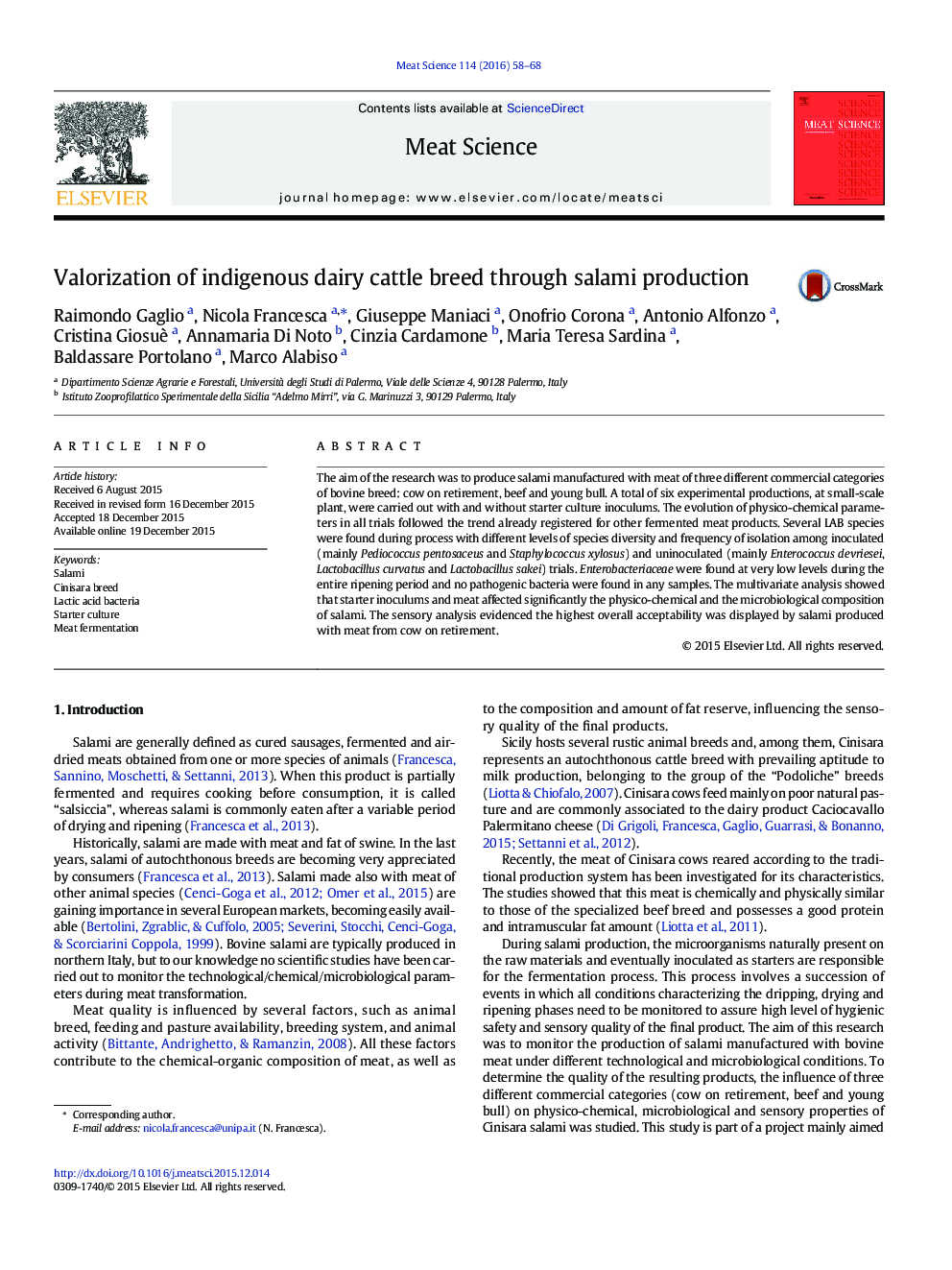| Article ID | Journal | Published Year | Pages | File Type |
|---|---|---|---|---|
| 2449604 | Meat Science | 2016 | 11 Pages |
The aim of the research was to produce salami manufactured with meat of three different commercial categories of bovine breed: cow on retirement, beef and young bull. A total of six experimental productions, at small-scale plant, were carried out with and without starter culture inoculums. The evolution of physico-chemical parameters in all trials followed the trend already registered for other fermented meat products. Several LAB species were found during process with different levels of species diversity and frequency of isolation among inoculated (mainly Pediococcus pentosaceus and Staphylococcus xylosus) and uninoculated (mainly Enterococcus devriesei, Lactobacillus curvatus and Lactobacillus sakei) trials. Enterobacteriaceae were found at very low levels during the entire ripening period and no pathogenic bacteria were found in any samples. The multivariate analysis showed that starter inoculums and meat affected significantly the physico-chemical and the microbiological composition of salami. The sensory analysis evidenced the highest overall acceptability was displayed by salami produced with meat from cow on retirement.
